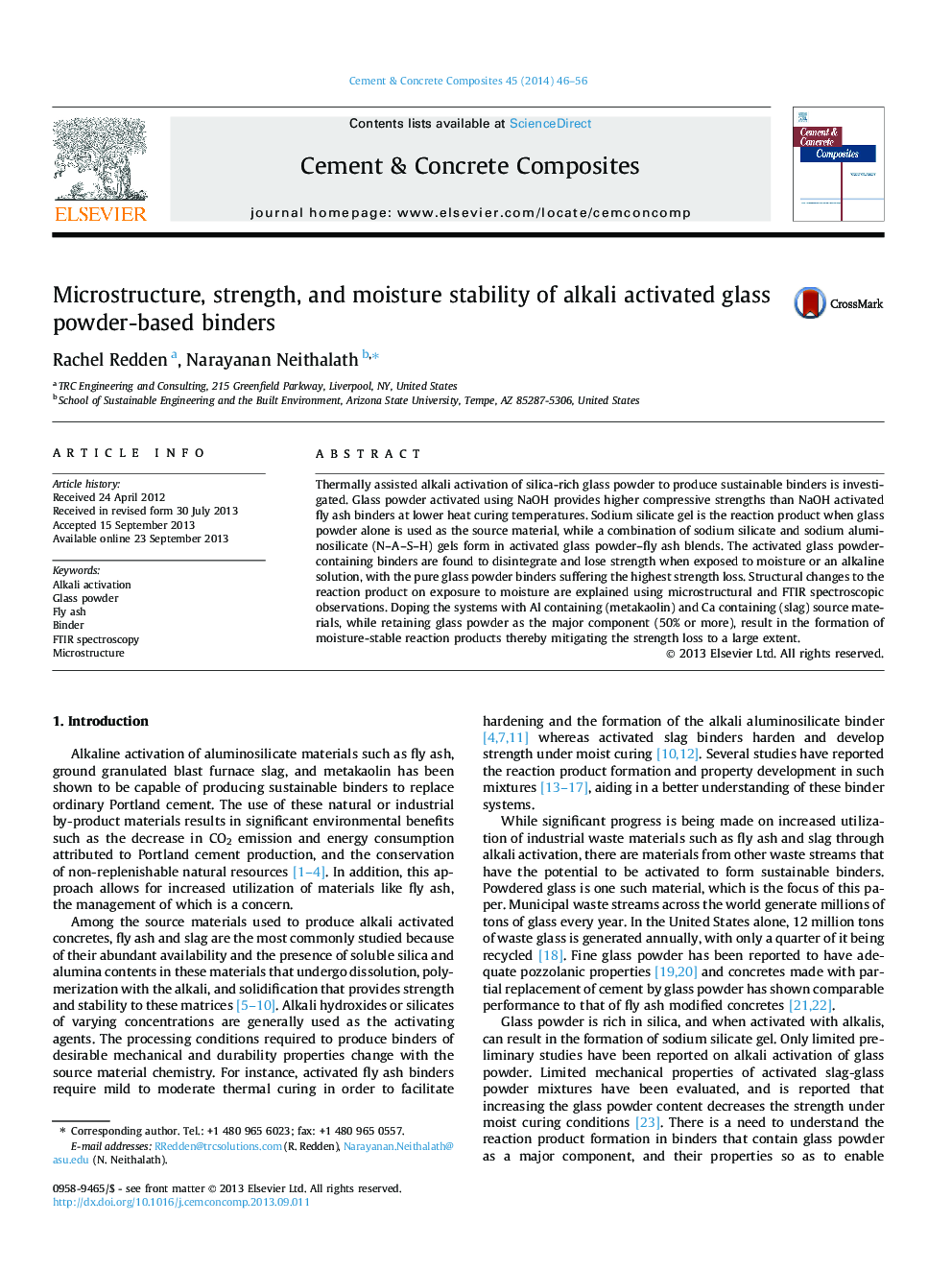| Article ID | Journal | Published Year | Pages | File Type |
|---|---|---|---|---|
| 1454705 | Cement and Concrete Composites | 2014 | 11 Pages |
Thermally assisted alkali activation of silica-rich glass powder to produce sustainable binders is investigated. Glass powder activated using NaOH provides higher compressive strengths than NaOH activated fly ash binders at lower heat curing temperatures. Sodium silicate gel is the reaction product when glass powder alone is used as the source material, while a combination of sodium silicate and sodium aluminosilicate (N–A–S–H) gels form in activated glass powder–fly ash blends. The activated glass powder-containing binders are found to disintegrate and lose strength when exposed to moisture or an alkaline solution, with the pure glass powder binders suffering the highest strength loss. Structural changes to the reaction product on exposure to moisture are explained using microstructural and FTIR spectroscopic observations. Doping the systems with Al containing (metakaolin) and Ca containing (slag) source materials, while retaining glass powder as the major component (50% or more), result in the formation of moisture-stable reaction products thereby mitigating the strength loss to a large extent.
